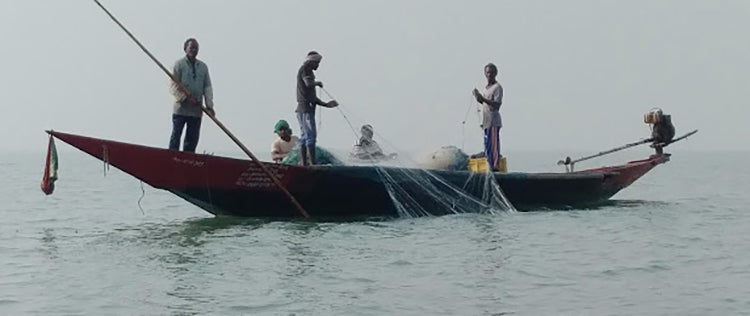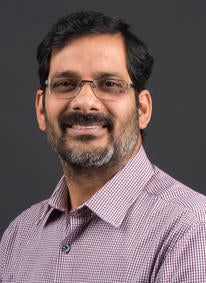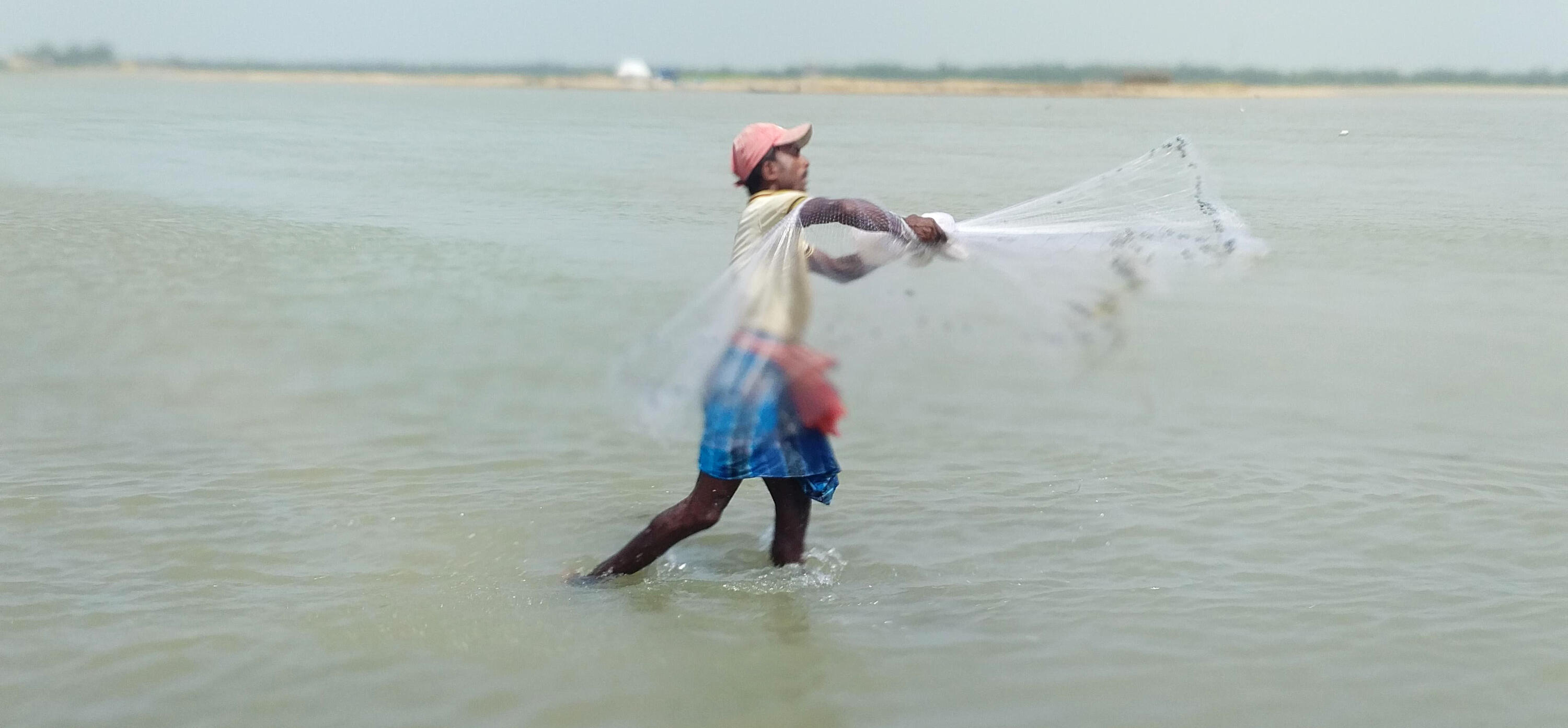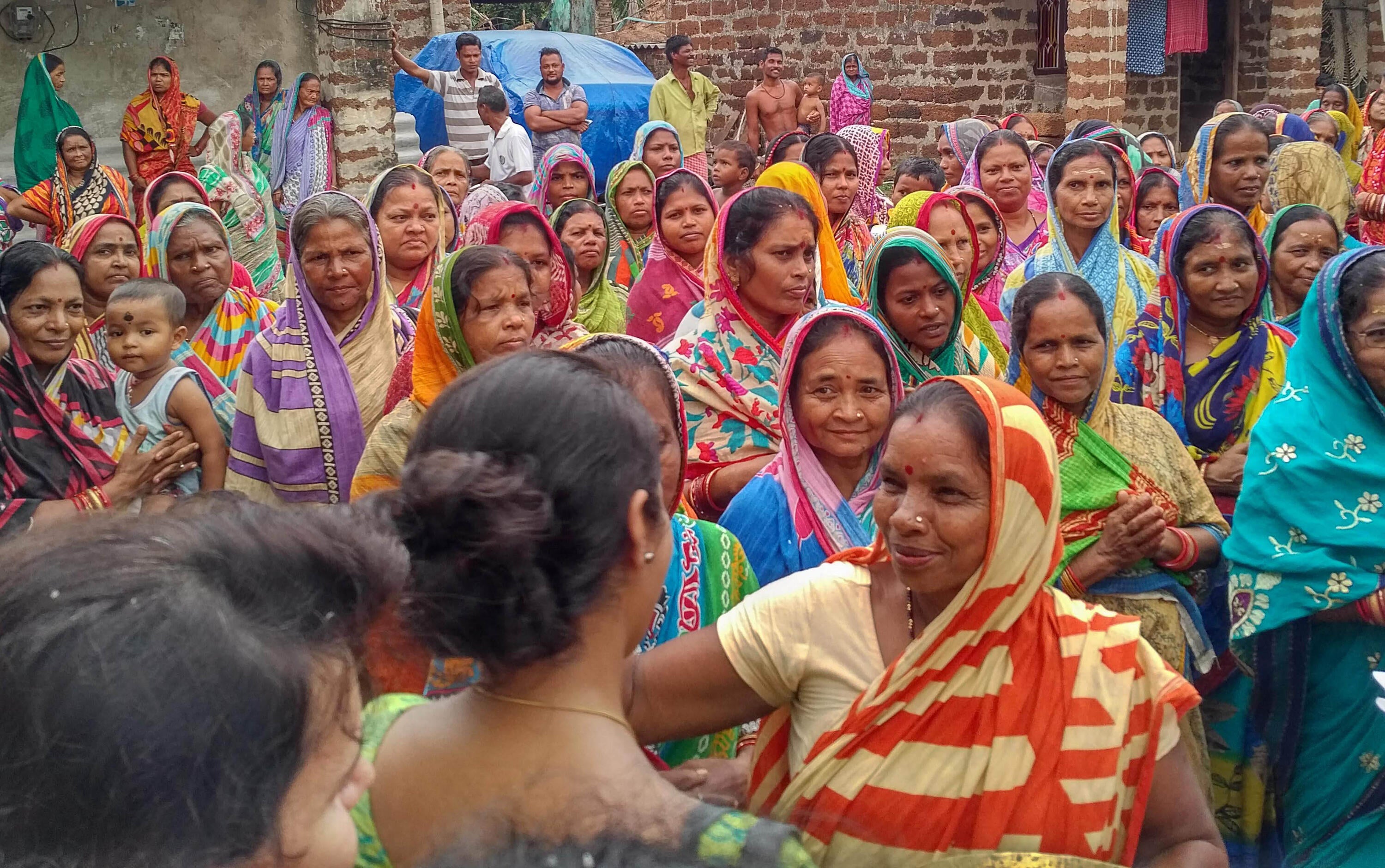
Cooperation and collective action are features of many traditional small-scale fisheries: Fishing in the Bay of Bengal, South Asia.

Nayak will lead a global team that spans 12 countries, includes 95 partners, 31 universities, 15 government institutions, and 21 NGOs. Waterloo co-applicants include Water Institute members Derek Armitage, Andrea Collins, Simron Singh, and Jeremy Pittman.
Small-scale fisheries support over 90 per cent of the 120 million people engaged in capture fisheries globally. They also contribute two-thirds of the global fish catch destined for direct human consumption and provide critical contributions to food security, poverty alleviation, and local and national economies.

There are many skills in small-scale fishing that handed though culture: Net casting for subsistence fishing in Chilika Lagoon, India
“Most SSF communities are economically marginalised, increasingly vulnerable to climate and environmental change, and, until recently, they have remained largely invisible in global and national policy debates. However, the prognosis is not all negative. SSF possess certain strengths and forms of resilience upon which to build viable solutions to combat food insecurity and poverty. Transitioning SSF from vulnerability to viability (V2V) is a crucial area of study that V2V is committed to examine further in collaboration with community, NGO, government, and University partners around the globe.” Says Nayak.
The ultimate goals of the V2V Global Partnership are to critically examine factors contributing to the vulnerability of SSF; and engage collaboratively with SSF communities to enhance social, political, and ecological viability, not just economic.
Derek Armitage explained “Five global working groups and twelve country teams (six each in Asia and Africa) provide a foundation for V2V research and knowledge mobilization. The V2V Global Partnership aims to compare and synthesize experience between and across study sites, scaling up the insights for broader impact through the development of national and regional policy recommendations, program interventions, and governance arrangements that support viable, community-led SSF initiatives.”
The V2V Partnership will also support training opportunities for 52 students and career early researchers, a unique Fellows Program to support 20 South-South collaboration, the development of curricula for training in conjunction with academic and civil society partners, and the development of an open-access information system and global resource portal to provide a powerful resource for global SSF research, policy, and action.
Nayak notes that the V2V partnership and grant success is directly linked to two Water Institute seed grants he had previously been awarded; Catching Ripples in the Water & Water Wither Why, that helped scope the work and solidify partnerships.
The Water Institute congratulates the applicants on this exciting initiative.

Collaborative spirit is always high in small-scale fishing communities: Village women welcoming Waterloo Field school participants upon arrival
Related
initiatives:
Related SSHRC Grants to Prateep Nayak and Derek Armitage: